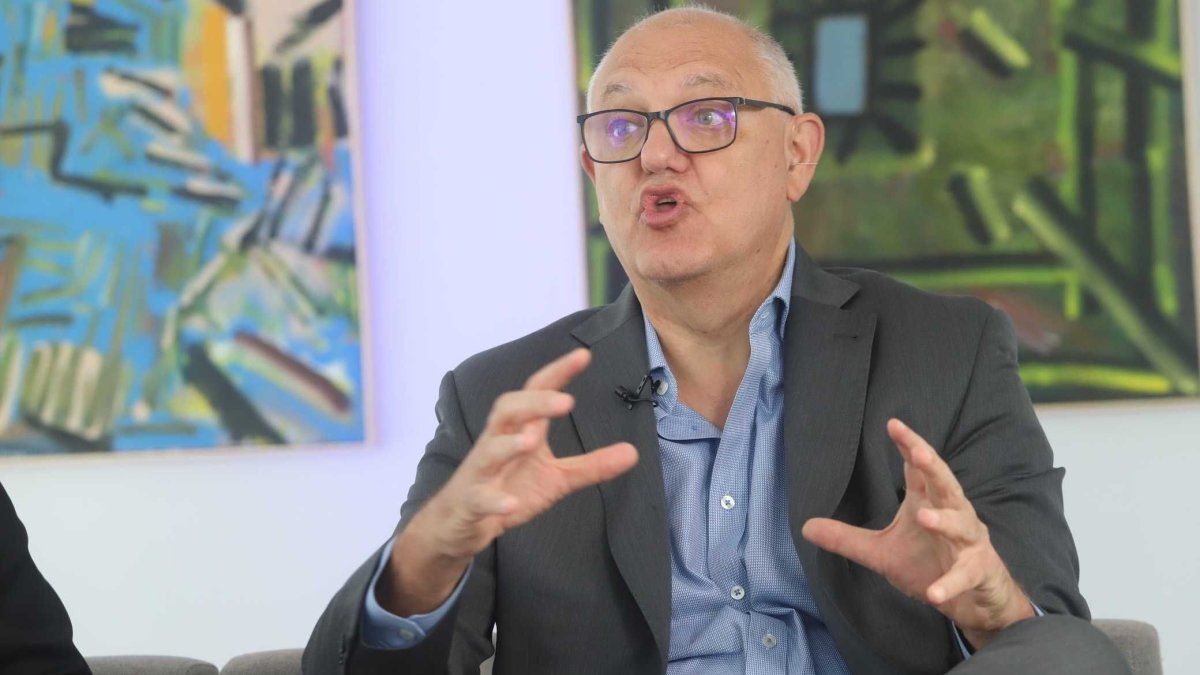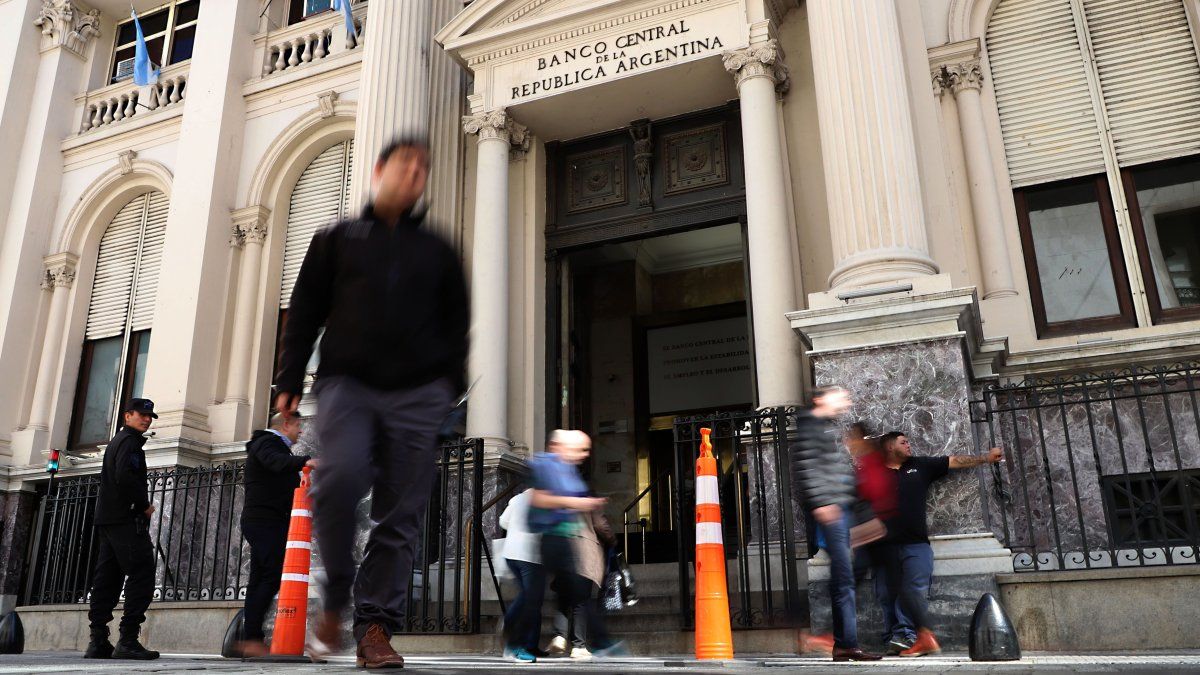During the event, moderated by the director of Ámbito, Julian Guarino, Timerman took stock of 2024 and highlighted that “It was a positive year for the investor, but also a year of great uncertainty,” and then define: “It was very difficult to predict what ended up happening. If we started on January 1 and analyzed some variables such as the level of reserves and the crawling peg of 2%, we would have thought that we would reach the end of the year in a different way.”
“However, we have certain exchange calm; a debt market that today is at the best levels so far this year and for quite some time; confidence on the part of investors in general about Argentine assets; and we have Galicia Bank emitting below 8%. They are signs that the capital market is getting organized and is positive,” he said.
Investor caution and risks
However, the director of Grupo Financiero Adcap admitted that “Investors have to think about what can go wrong and measure what the consequences of that are,” So he compared: “We all use what happened in 2019 as a thermometer, with a government that the market liked, that talked about issuing again or dreamed of Argentina with investment grade, had held the G20 meeting and presidents came.”
“You could think that Argentina was heading towards a different model. However, The PASO events occur unexpectedly for the market and the market falls 70%. “That will always be in the memory of investors and puts a brake on the potential upside,” he warned.
The capital market, on the rise
Meanwhile, Timerman highlighted improvement in the capital market and considered that “it is an interesting phenomenon because it has not been experienced in other times,” pointing out: “It was unthinkable to think that provincial bonds were going to yield less than the sovereign bond. One always thought that if Argentina defaults at the national level, provinces and companies too. That did not happen in the last Argentine default and The credibility of these sectors greatly increased, because it was shown that they are companies capable of competing and attracting investments, “That during these years they made that adjustment that the nation demands today.”
“That is positive, but it is not something that can be maintained over time. It is very difficult when one seeks to attract investments to have a country risk and for Argentine bonds to yield 20%. They are going to say ‘how do I invest in a country where its debt yields 20%’. “That is being demystified,” he highlighted.
At the same time, the representative of Grupo Financiero Adcap considered that “The Argentine capital market is developing quite surprisingly,” indicating that “there are countries that have much better credit and do not have such a developed market.”
“Today, for several years now, a market has been developing among private individuals, for loans, promissory notes and checks that is growing a lot and it surprises me. I think that a lot of the growth is going to come from there and this increase in credit that is being talked about comes from this development in the local capital market. The credit is going to come from the locals more than from outside,” he anticipated.
Future forecasts
Regarding the forecasts of economists, Timerman considered that “today they are divided into thirds: those who believe that Argentina needs to devalue, those who talk about releasing the stocks and those who say that nothing should be done and everything should be kept as it is.” “It’s not that they are bad or good, but that they can’t understand how people are going to react and they think differently, which I think is good because you don’t really know,” he analyzed.
“The Government is betting on maintaining the policies and that shows how difficult it is to invest in Argentina. You have two very difficult issues to price. Argentina comes from a well of credibility and that takes a long time to reverse. It is difficult to know if the market is going to give time to the correct or incorrect policies of the Government,” he added.
Likewise, he maintained that “many believe that it will depend on the accumulation of reserves or whether the exchange rate is behind or not,” but he differed from that view. “I think the market’s benefit of the doubt will depend on policy, not reserves. If tomorrow we see that Cristina Fernández de Kirchner has 60% approval, the stability scheme falls. The risk today comes from politics and not necessarily from economic variables, for which it is difficult to predict reaction and timing,” he pointed out.
The dependence on the dollar
Besides,Timerman considered that cutting dependence on the dollar “is something that should happen if we want to be a more normal country where investments are thought about from the point of view of own investment and not country risk or external risk.”
“There are countries that have a lot of volatility in the exchange rate, like Colombia for example. However, the exchange rate is not a problem. The Colombian thinks in Colombian pesos and so does the investor. “Argentina should tend to normalize this obsession with the dollar,” compared.
And he ventured: “If investments begin to arrive and Argentina begins to be part of the global markets in a more normal and efficient way, I think that Argentines will begin to think a little that the dollar is not the only refuge, that in fact many times it was not with respect to papers in pesos.”
The exit from the exchange rate
Finally, the director of Grupo Financiero Adcap referred to the exchange rate and warned: “At some point it will open and you will see it there. It is very difficult to evaluate a capped economy, measure an investment, the amount of reserves you need, the interest rate you need, real economic activity. The country has to normalize.”
However, he considered that “It is difficult to predict when the Government is going to leave the exchange rate trap by analyzing macroeconomic variables only” and maintained that the Government “believes that it is an extremely important decision and has only one bullet, that they cannot make a mistake with that decision because it would come from the part of market instability.”
Along these lines, he admitted that leaving the stocks “is a kind of obsession” and analyzed: “Knowing the mentality of the people who are in the Ministry of Economy, they are going to want to shield themselves in the best possible way. “It will depend on how the market evolves and what type of agreement is reached with the IMF, which is crucial for the opening of the stocks.”
“When there is fresh money, an agreement with the IMF, some money from multilateral organizations, an agreement with banks and contraction of country risk, maintaining this status quo of fiscal and monetary tightening, that will give the Government more tools to have more ammunition when you open the trap,” he indicated.
And he graphed: “It is very difficult to predict the market reaction. Today, a company that has 200 or 300 million dollars in pesos, which were going to be used to pay dividends or intercompany loans, when the stocks are opened there will be a call to ask what to do. The outside shareholder can say ‘bring them to me now’ or ‘I liked the reaction, invest them’. Nobody knows the answer.”
Source: Ambito
I am Pierce Boyd, a driven and ambitious professional working in the news industry. I have been writing for 24 Hours Worlds for over five years, specializing in sports section coverage. During my tenure at the publication, I have built an impressive portfolio of articles that has earned me a reputation as an experienced journalist and content creator.




